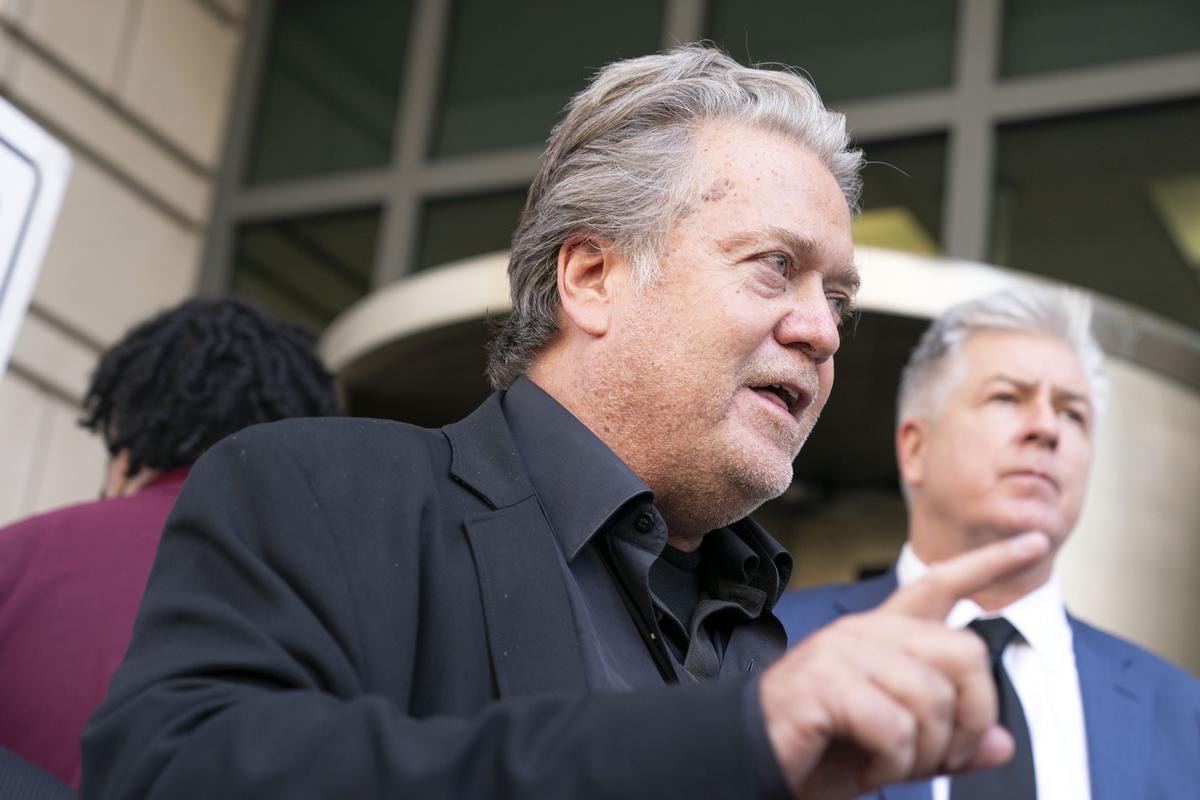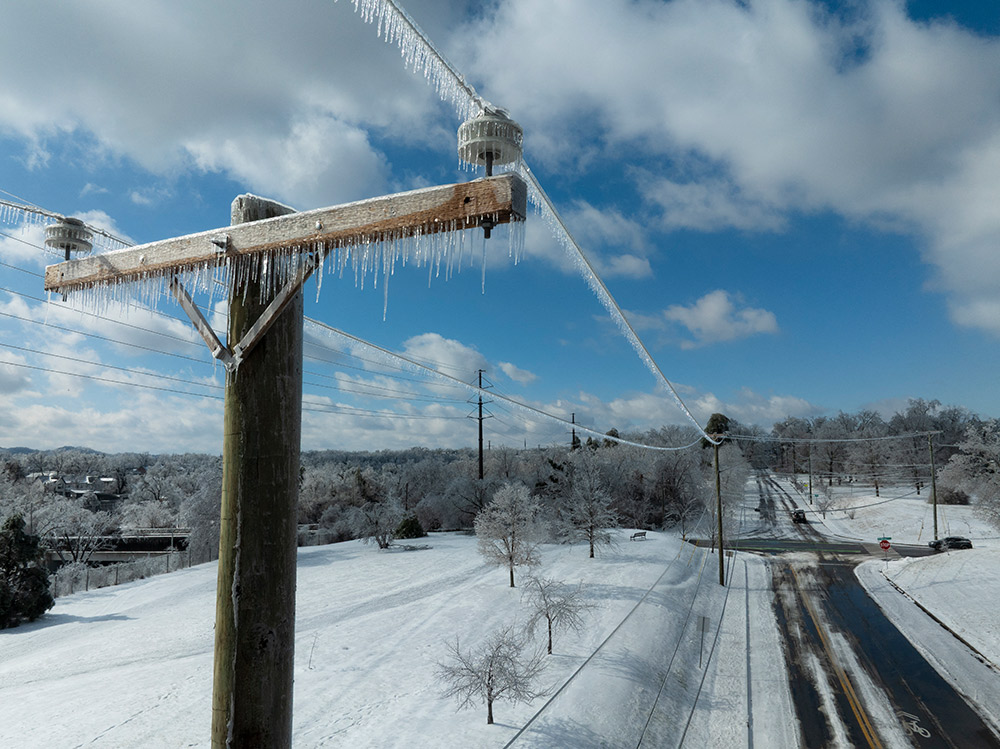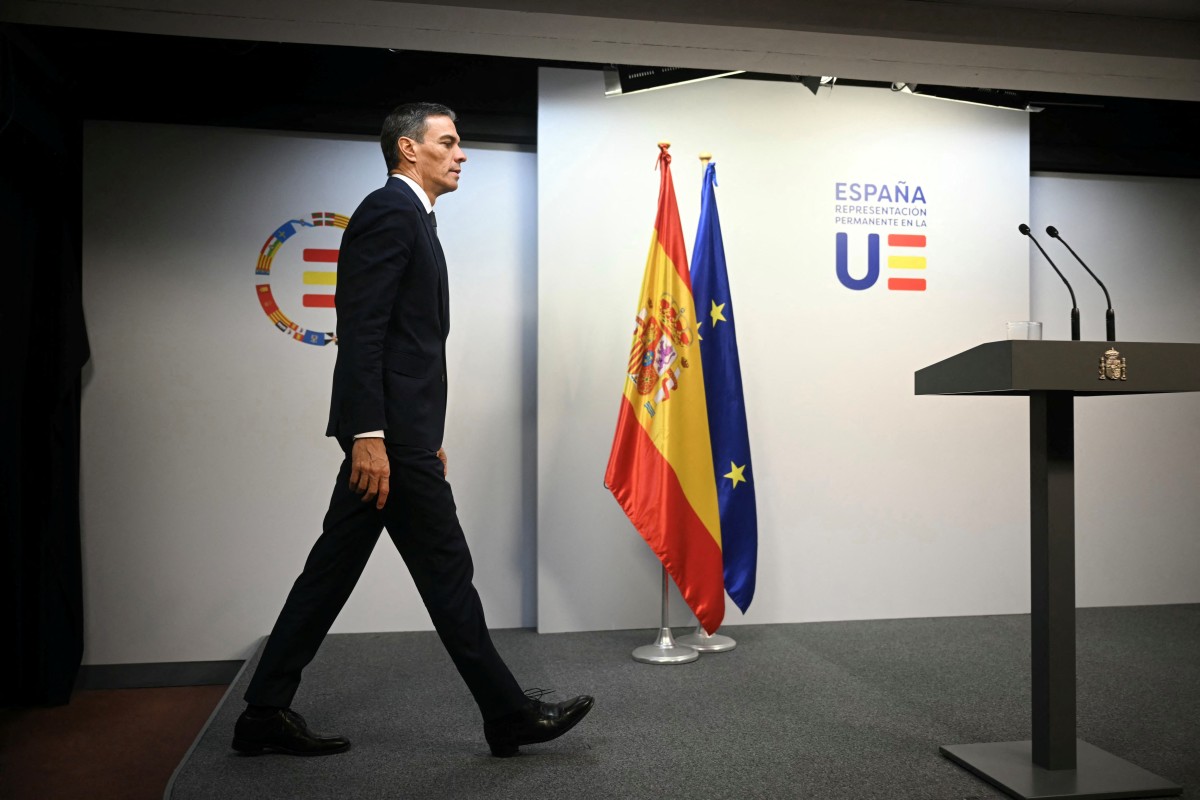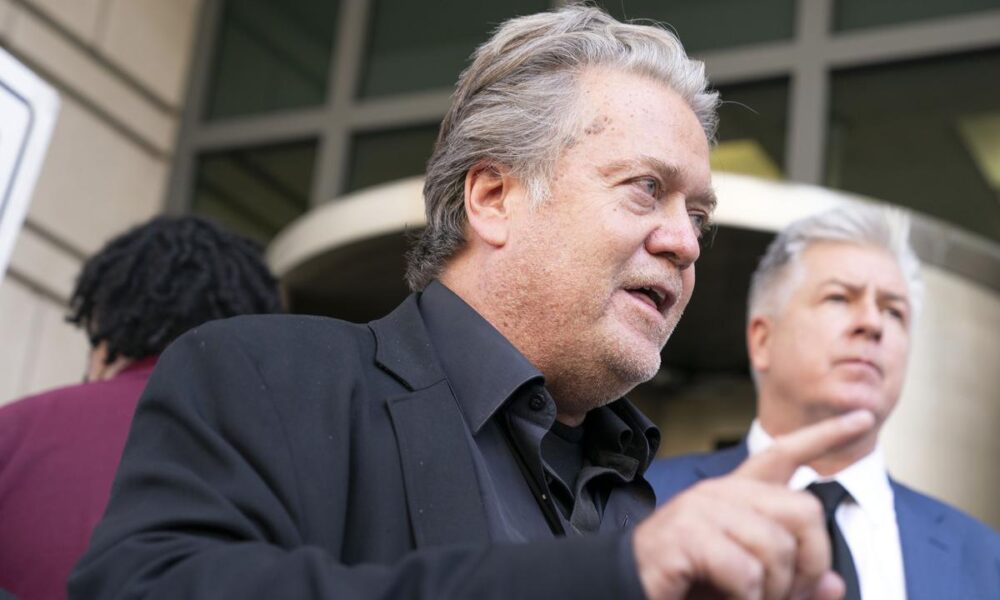International
US seeks six months in jail for ex-Trump aide Bannon

AFP
The US Justice Department asked a judge Monday to sentence Donald Trump’s former aide Steve Bannon to six months in prison for refusing to testify in Congress’s probe of the January 6, 2021 attack on the Capitol.
Bannon, a longtime political strategist and vocal advocate for the Republican former president, was found guilty in July on two counts of contempt of Congress for defying a subpoena to testify.
The Justice Department said in a sentencing recommendation that the 68-year-old Bannon should receive the six-month sentence and pay a fine of $200,000 because he repeatedly sought to delay the proceedings by hinting he might cooperate.
Bannon “has pursued a bad-faith strategy of defiance and contempt,” the department said.
The investigation by a special House committee depicted Bannon last week as knowing in advance of the plan by hardline Trump supporters to attack the Capitol to prevent Democrat Joe Biden from being confirmed as the next president.
It also showed him advocating for Congress to block Biden — who defeated Trump in the November 2020 election — from becoming president.
“The rioters who overran the Capitol on January 6 did not just attack a building — they assaulted the rule of law upon which this country was built and through which it endures,” the department said.
“By flouting the Select Committee’s subpoena and its authority, the defendant exacerbated that assault.”
The maximum sentence for contempt of Congress is 12 months, and a $100,000 fine.
The department’s recommendation of six months in prison is at the top end of the standard sentencing guidelines, a calculation based on the context of the crime and the defendant’s own justice record.
Sentencing is set for October 21.
But Bannon, who currently runs a streaming political commentary website, “Bannon’s War Room,” could appeal the sentence, delaying its implementation well into next year.
International
Winter Storm Fern Leaves 30 Dead and Over One Million Without Power Across the U.S.

The massive winter storm Fern, bringing polar temperatures, battered large portions of the United States for a third consecutive day on Monday, leaving at least 30 people dead, more than one million households without electricity, and thousands of flights grounded.
In the Great Lakes region, residents awoke to extreme cold, with temperatures dropping below -20°C. Forecasts indicate that conditions are expected to worsen in the coming days as an Arctic air mass moves south, particularly across the northern Great Plains and other central regions, where wind chills could plunge to -45°C, temperatures capable of causing frostbite within minutes.
Across the country, heavy snowfall exceeding 30 centimeters in roughly 20 states triggered widespread power outages. According to PowerOutage.com, nearly 800,000 customers remained without electricity on Monday morning, most of them in the southern United States.
In Tennessee, where ice brought down power lines, approximately 250,000 customers were still without power. Outages also affected more than 150,000 customers in Mississippi and over 100,000 in Louisiana, as utility crews struggled to restore service amid dangerous conditions.
International
Spain approves plan to regularize up to 500,000 migrants in Historic Shift

In November 2024, Spanish Prime Minister Pedro Sánchez announced a reform of the country’s immigration regulations aimed at regularizing 300,000 migrants per year over a three-year period, in an effort to counter population aging in a country where births have fallen by 25.6% since 2014, according to official data.
Going against the trend in much of Europe, Spain’s left-wing government has now approved an exceptional migrant regularization plan that could benefit up to 500,000 people, most of them from Latin America.
The measure will allow the regularization of around “half a million people” who have been living in Spain for at least five months, arrived before December 31, 2025, and have no criminal record, Migration Minister Elma Saiz explained on public television.
The plan, approved on Tuesday by the Council of Ministers, establishes that applications will be processed between April and June 30, enabling beneficiaries to work in any sector and anywhere in the country, Saiz said.
“Today is a historic day for our country. We are strengthening a migration model based on human rights, integration, and one that is compatible with economic growth and social cohesion,” the minister later stated at a press conference.
The socialist government of Pedro Sánchez stands out within the European Union for its migration policy, contrasting with the tightening of immigration measures across much of the bloc amid pressure from far-right movements.
Central America
Honduras swears in conservative president Asfura after disputed election

Conservative politician Nasry Asfura assumed the presidency of Honduras on Tuesday with an agenda closely aligned with the United States, a shift that could strain the country’s relationship with China as he seeks to confront the economic and security challenges facing the poorest and most violent nation in Central America.
Asfura’s rise to power, backed by U.S. President Donald Trump, marks the end of four years of left-wing rule and secures Trump another regional ally amid the advance of conservative governments in Chile, Bolivia, Peru, and Argentina.
The 67-year-old former mayor and construction businessman was sworn in during an austere ceremony at the National Congress, following a tightly contested election marred by opposition allegations of fraud and Trump’s threat to cut U.S. aid if his preferred candidate did not prevail.
Grateful for Washington’s support, Asfura—who is of Palestinian descent—traveled to the United States to meet with Secretary of State Marco Rubio, before visiting Israeli Prime Minister Benjamin Netanyahu.
“We need to strengthen relations with our most important trading partner,” Asfura said after being declared the winner of the November 30 election by a narrow margin, following a tense vote count that lasted just over three weeks.
-

 Central America4 days ago
Central America4 days agoGuatemala’s president rules out negotiations with inmates after prison riots
-

 Central America1 day ago
Central America1 day agoGuatemala seizes over a ton of cocaine hidden in flour at Pacific port
-

 International4 days ago
International4 days agoTrump-Era Defense Plan Prioritizes Border Security and Scales Back Global Commitments
-

 Internacionales4 days ago
Internacionales4 days agoMajor winter storm threatens “catastrophic” ice and snow across much of the U.S.
-

 International4 days ago
International4 days agoBogotá and Quito Seek Dialogue After Tariffs and Power Cut Escalate Tensions
-

 International4 days ago
International4 days agoGuatemala considers sending high-risk gang members to military prisons
-

 International3 days ago
International3 days agoDelcy Rodríguez seeks political agreements after Maduro’s ouster
-

 International1 day ago
International1 day agoHistoric snowstorm paralyzes Toronto after 60 centimeters of snow
-

 International1 day ago
International1 day agoSpain’s irregular migrant population rises to 840,000, study finds
-

 International3 days ago
International3 days agoFederal immigration agents kill man in Minneapolis, sparking protests and outrage
-

 International4 days ago
International4 days agoRights group says over 5,000 killed in Iran protests, mostly civilians
-

 International1 day ago
International1 day agoRights group says nearly 6,000 killed in Iran protest crackdown
-

 Central America8 hours ago
Central America8 hours agoGuatemala Police Arrest Prison Guard Caught in the Act of Extortion
-

 International8 hours ago
International8 hours agoDoomsday clock moves to 85 seconds before midnight amid rising global risks
-

 International8 hours ago
International8 hours agoWinter Storm Fern Leaves 30 Dead and Over One Million Without Power Across the U.S.
-

 International1 day ago
International1 day agoVenezuela frees at least 80 political prisoners, NGO says
-

 Sin categoría8 hours ago
Sin categoría8 hours agoEight Killed in Series of Armed Attacks in Ecuador’s Manabí Province
-

 International1 day ago
International1 day agoEU launches new probe into X over AI-generated fake nude images
-

 Central America8 hours ago
Central America8 hours agoHonduras swears in conservative president Asfura after disputed election
-

 International8 hours ago
International8 hours agoSpain approves plan to regularize up to 500,000 migrants in Historic Shift
-

 Central America9 hours ago
Central America9 hours agoBukele leads public trust rankings as UCA survey highlights gains in security
-

 Sin categoría8 hours ago
Sin categoría8 hours agoEl Salvador Launches Fourth Year of Ocean Mission to Protect Marine Ecosystems
-

 International1 day ago
International1 day agoSevere winter storm grips U.S., leaves multiple dead as extreme cold persists
-

 International1 day ago
International1 day agoFrance debates ban on social media for children under 15




























